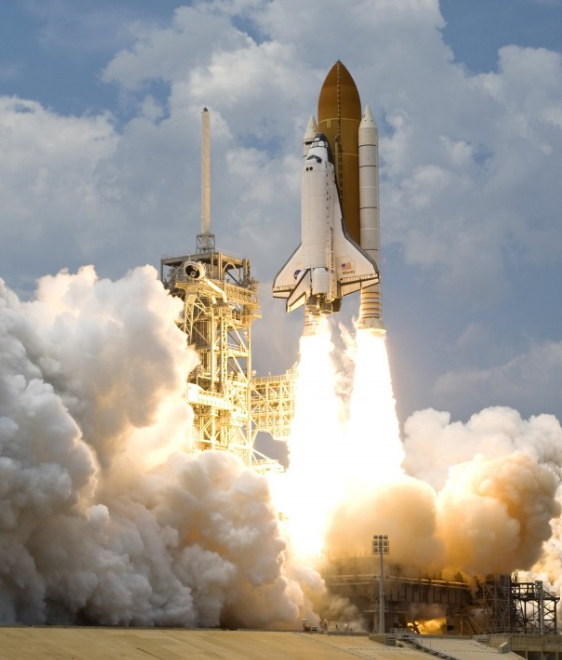The Indian Space Research Organization (ISRO) is one of the world’s leading space agencies, known for its impressive achievements in space exploration, cost-effective missions, and advanced technology. Indians take immense pride in the endeavors taken up by ISRO, which has successfully completed many missions while constantly pushing the boundaries of space science.

If you’re inspired by ISRO’s work and want to become a part of it, a career as a space scientist could be your calling. In this blog, we’ll cover everything you need to know to embark on this journey—from educational qualifications to the courses and colleges that can help you get there.
Who is a Space Scientist?
Space scientists are generally divided into two categories: Physicists and Astronomers. Physicists focus on theoretical concepts and laboratory work, while astronomers conduct research on galaxies, stars, and other celestial phenomena. Both paths lead to a career in space science, which is the study and exploration of the universe.
How to Become a Space Scientist at ISRO?
Here’s a detailed, step-by-step guide on how to become a space scientist at ISRO:
Step 1: Complete 10+2 with Science
To start on the path to becoming a space scientist, you need to complete your higher secondary education (10+2) with Physics, Mathematics, and Chemistry as compulsory subjects. You should have a strong grasp of mathematical and physical concepts.
Step 2: Pursue an Engineering Degree
After completing 12th grade, the next step is to pursue a B.Tech or B.E. degree in fields such as:
- Mechanical Engineering
- Electronics Engineering
- Electrical Engineering
- Aerospace Engineering
- Computer Science Engineering
- Engineering Physics
- Radio Engineering
These fields provide the foundation required for space science careers.
Step 3: Appear for ISRO’s ICRB Exam
After obtaining a B.E. or B.Tech degree, candidates must clear the ISRO Centralized Recruitment Board (ICRB) exam. The eligibility criteria for this exam are a minimum of 65% marks (or a 6.8 CGPA on a scale of 10) in the qualifying degree. The ICRB exam consists of a written test followed by an interview.
Students may also pursue higher education such as a Master’s or PhD in fields like Geophysics, Geoinformatics, Applied Mathematics, or Instrumentation before applying for the ISRO exam.
Courses to Pursue After 12th for a Career in Space Science
Here are some recommended courses after 12th grade for those aspiring to become space scientists:
- B.Tech in Aerospace Engineering
- B.Tech in Avionics Engineering
- M.Tech in Electronics, Electrical, Mechanical, or Computer Science
- PhD in Physics or Astronomy
- PhD in Aerospace Engineering
- B.Tech in Engineering Physics + M.S. in Astronomy or Optical Engineering
These courses will equip you with the skills and knowledge required to excel in the field of space science.
Top Space Science Colleges in India
If you aim to become a space scientist, here are some top colleges in India offering relevant courses:
- Indian Institute of Science (IISc), Bangalore
- Indian Institute of Space Science and Technology (IIST), Thiruvananthapuram
- Indian Institutes of Technology (IITs)
- Kharagpur
- Bombay
- Kanpur
- Madras
- Indian Institute of Astrophysics, Bangalore
- Aryabhatta Research Institute of Observational Sciences (ARIES), Nainital
- Physical Research Laboratory (PRL), Ahmedabad
These institutions offer undergraduate and postgraduate programs that align with ISRO’s requirements.
Frequently Asked Questions (FAQs)
Q: Which course should I pursue to become a scientist at ISRO?
A: You can pursue a B.Tech in Aerospace or Avionics Engineering, M.Tech in Electronics, Electrical, Mechanical or Computer Science, or a PhD in Physics or Aerospace Engineering.
Q: What are the educational requirements to become a scientist at ISRO?
A: You need to complete your 10+2 with Physics, Mathematics, and Chemistry as core subjects, followed by a B.Tech or B.E. degree in a relevant engineering field.
Q: What is the eligibility for the ICRB exam?
A: You must have a B.Tech or B.E. degree in fields like Electronics, Computer Science, or Mechanical Engineering, with at least 65% marks or a 6.8 CGPA on a scale of 10.
Becoming a space scientist at ISRO is a challenging yet rewarding career path. With a passion for space exploration, strong academic qualifications, and dedication, you can play a role in India’s space missions and contribute to the organization’s future successes.
